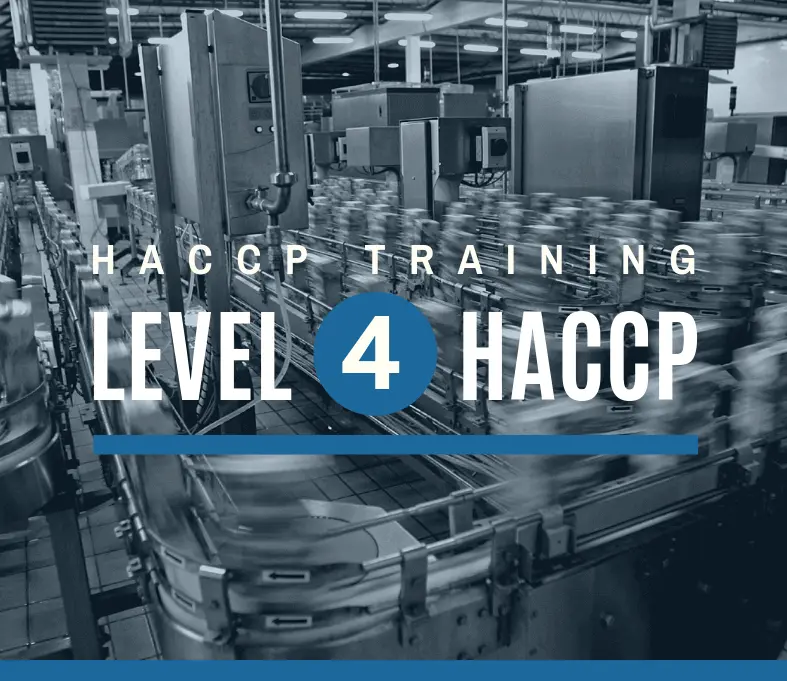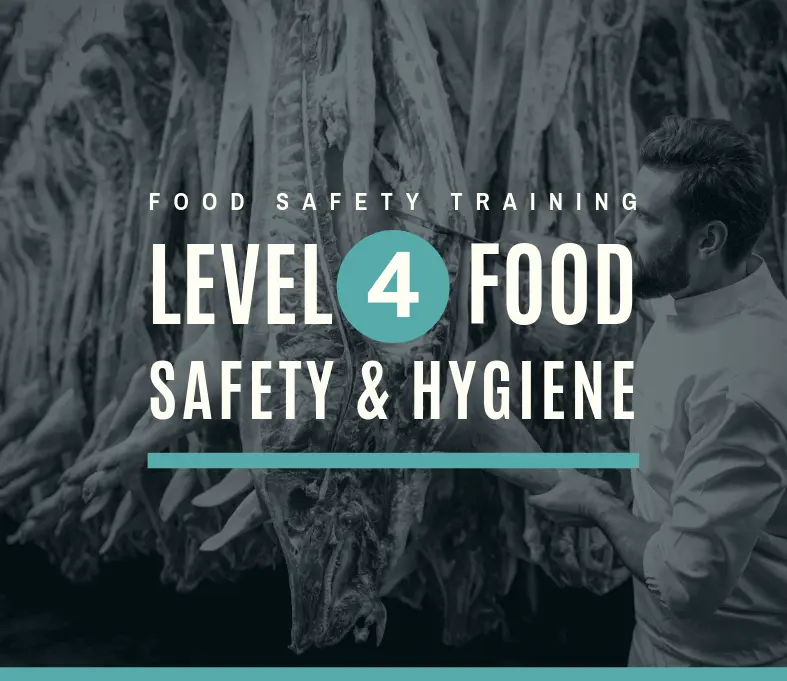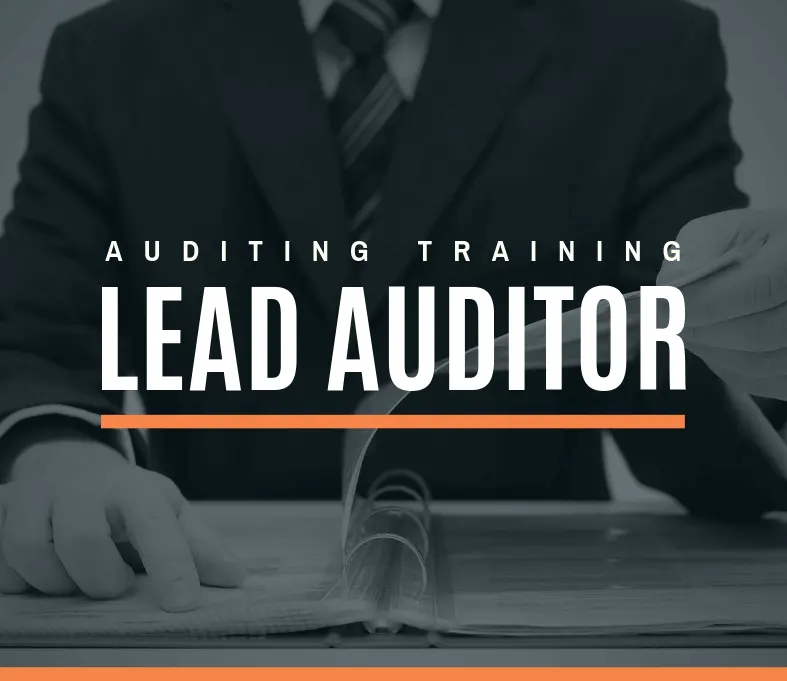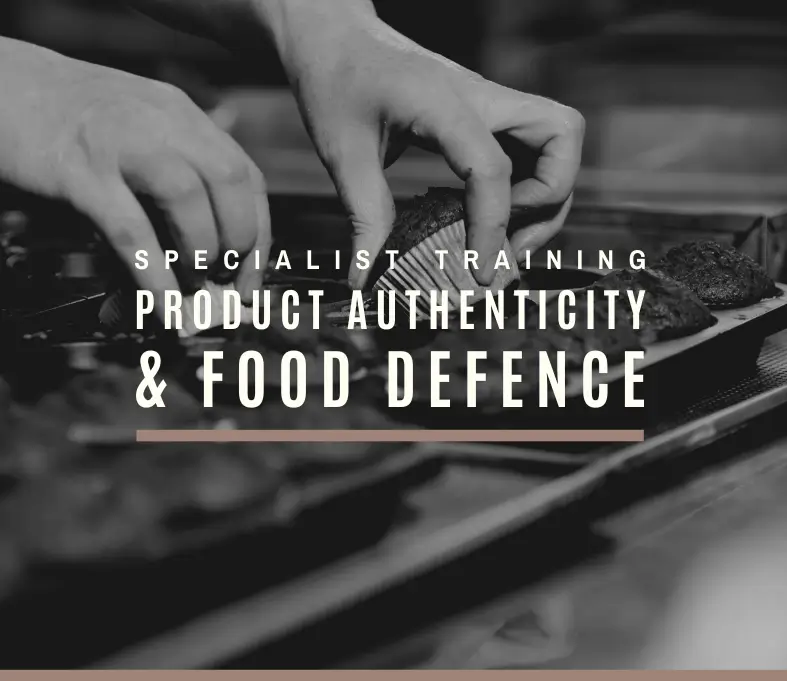
RSPH Level 4 HACCP Training Course
An intensive advanced level course focusing on the management aspects of HACCP.
Course Fee
Course Description
This intensive 4-day training course leads to the RSPH Level 4 Award in Managing the HACCP System - the UK's most advanced HACCP management qualification.
Designed specifically for HACCP team leaders, technical managers, consultants and enforcers, this advanced course addresses the complex management and leadership challenges of implementing effective HACCP systems. With many major retailers now requiring suppliers' managers to hold Level 4 HACCP qualifications, this certification has become essential for senior food safety professionals.
Our expert-led training goes beyond basic HACCP principles to focus on real-world implementation, team leadership, system validation, and overcoming the barriers that prevent effective HACCP system deployment in food manufacturing environments.
**In-house HACCP courses for food manufacturers are our speciality**
Video Overview
Duration
4 days
Who Should Attend?
HACCP team leaders, technical managers, consultants and enforcers with a Level 3 HACCP qualification or equivalent.
Entry Requirements
Participants should ideally hold the RSPH Level 3 Award in Understanding how to Develop a HACCP Plan, or an equivalent qualification, and possess a good working knowledge of their industry sector before embarking on this Advanced HACCP training course.
Course Delivery / Format
Classroom
Delivered face to face at our training centre in Skipton, North Yorkshire UK.
Directions to our training centre
Remote
Delivered Live and online so you'll require a computer and Internet connection
Full details and logging in information given before the start of the course
Course Structure & Content
| Section 1 |
|---|
|
| Section 2 |
|
| Section 3 |
|
| Section 4 |
| Post-course |
|
Learning Outcomes
This course gives you the knowledge to be able to explain the importance of HACCP systems and prerequisite programmes, review relevant legislation and evaluate product descriptions. You will also be able to plan and design an effective HACCP system and establish and lead a HACCP team. You will understand how to successfully implement and manage HACCP programmes and validate, verify and maintain them, overcoming any barriers.
Qualification / Assessment
RSPH Level 4 Award in Managing the HACCP System.
The examination consists of two written papers:
- Paper A will consist of 10 questions to be answered in 2 hours.
- Paper B will consist of 5 questions based on given scenarios, to be completed in 1 hour
Course Fee
£1,295 +VAT
All course fees are payable in advance.
Course fee includes:
- Course binder and notes
- Lunch and refreshments*
- RSPH Examination fee and certificate
* Classroom courses only
Course Overview
Understanding the RSPH Level 4 HACCP Training Course
Why do I need Level 4 HACCP Training?
HACCP (Hazard Analysis and Critical Control Point) identifies and assesses potential hazards within a food safety system (Critical Control Points) and introduces measures to prevent or mitigate them. It is an essential procedure for all food manufacturers to ensure that food remains safe for public consumption. Moreover, it is a requirement by many of the major retailers that their suppliers’ managers and HACCP team leaders hold an advanced HACCP qualification.
Is this course right for me?
If you already hold the RSPH Level 3 Award in Understanding How to Develop a HACCP Plan or an equivalent qualification, then this course is the next step towards HACCP excellence. It’s designed specifically for HACCP team leaders, technical managers, consultants and enforcers who are already using HACCP in their work. Level 4 HACCP is an advanced training course, so you’ll need a good working knowledge of your industry sector too.
What does the training cover?
IThe RSPH Level 4 Award in Managing the HACCP System training dives deeper into HACCP. It covers the longer term and management aspects of HACCP which are essential to ensure that the system is functioning in an effective manner. In doing so, the training meets the exacting standards of several major food retailers.
In undertaking this course you will be fully conversant in the language of HACCP. You will be able to explain the importance of prerequisite programmes and HACCP systems. You will also have the confidence and knowledge to be able to review all relevant legislation and evaluate product descriptions before planning and designing an effective HACCP system.
A major part of the training covers the management aspects of HACCP – securing company-wide commitment to the HACCP programme, establishing and leading a HACCP team and managing the HACCP project itself. You will also learn how to overcome potential barriers to effective implementation.
The final part of the course concerns HACCP validation and verification. In other words, ensuring that the HACCP plan is built around sound scientific or technical research or information and documented evidence that proves that it will work effectively. Verification is monitoring the critical limits that have been set and making sure they are performing as they should. This course covers different methods of verification, as well as how and when to maintain and update the HACCP system.
Training delivered by HACCP experts
We believe that the best trainers not only deliver the course content in an engaging way, but also have relevant practical experience of the subject they are training. That’s why Verner Wheelock’s HACCP trainers all have several years of experience of working within the food industry and hands-on experience of managing HACCP systems. As a result, the training is illustrated by real-life examples which help to explain the practical application of the subject. It also means that delegates have the opportunity to ask questions relating to the application of HACCP within their own companies.
Assessment and certification
Delegates are invited to take their examination approximately two weeks after the end of the course – either at the Verner Wheelock training centre in Skipton, North Yorkshire, or at their place of work. The examination comprises two written papers. The first is two hours duration and consists of 10 questions. The second paper consists of 5 questions based on given scenarios and is an hour long.
A mark of 50% or higher must be achieved on each paper to attain a pass. Those attaining 80% or above on both papers will be awarded a distinction. Successful candidates will receive the RSPH Level 4 Award in Managing the HACCP Plan certificate.
At the close of the course, delegates will have the understanding to apply what they have learned to their own HACCP systems. They will also have the confidence to troubleshoot implementation issues and cascade knowledge down to other members of their team to foster understanding of HACCP and keep personnel on board with the HACCP plan. In achieving the Level 4 HACCP qualification they are demonstrating to employers, colleagues and auditors that they know how to manage a HACCP system effectively to ensure the manufacture of safe food products within their company.
When and where does the course take place?
Delegates can either attend in person at Verner Wheelock’s training centre in Skipton, North Yorkshire, close to the rail and bus stations, or remotely via Zoom. Open Level 4 HACCP courses are scheduled regularly throughout the year. Whichever way you choose to attend, the courses begin promptly at 9.30am and finish at around 4.30pm each day.
The latest course dates can be found by viewing our training calendar. For those attending in person lunch, and refreshments are included in the course fee. A course binder containing notes is provided for all delegates.
Other related training
In addition to the suite of HACCP courses, Verner Wheelock also provides auditing training to Lead Auditor standard and RSPH food safety and hygiene courses to Level 4, as well as a choice of specialist courses ranging from Root Cause Analysis, Product Authenticity & Food Defence and Legal Labelling to Managing Food Allergens, Managing Vegan Requirements and Enabling a Positive Food Safety Culture.
Course FAQ
The HACCP Level 4 training course is designed for HACCP team leaders, technical managers, consultants, and enforcers who already hold a Level 3 HACCP qualification or equivalent. It focuses on the advanced management aspects of HACCP and is ideal for individuals responsible for overseeing the implementation and maintenance of HACCP systems.
Holding an Advanced HACCP qualification demonstrates a higher level of expertise in managing HACCP systems. Many major retailers now require their suppliers' managers and HACCP team leaders to have this qualification, as it ensures they possess the necessary knowledge and skills to effectively manage and implement HACCP in their operations.
Validating a HACCP plan involves ensuring that the plan is scientifically sound and effective in controlling the identified hazards. This may include conducting studies or collecting data to support the chosen control measures. Verifying the HACCP system involves regular checks and reviews to ensure that the implemented controls are functioning as intended and meeting the desired outcomes.
Participants ideally should hold the RSPH Level 3 Award in Understanding how to Develop a HACCP Plan or an equivalent qualification. It is also important to possess a good working knowledge of the industry sector before undertaking this advanced HACCP training course.
The HACCP Level 4 course focuses on the longer-term and management issues of HACCP. It covers topics such as securing commitment, establishing and leading a HACCP team, managing the HACCP project, effective implementation, and maintaining and updating the HACCP system. This course equips participants with the skills to oversee and manage HACCP programs effectively.
The examination consists of two written papers. Paper A includes 10 questions to be answered in 2 hours, while Paper B consists of 5 questions based on given scenarios to be completed in 1 hour. Successful candidates will achieve the RSPH Level 4 Award in Managing the HACCP System.
The HACCP Level 4 training course provides consultants with advanced knowledge and skills in managing HACCP systems. It enhances their expertise and credibility when providing HACCP consulting services to clients. Consultants can gain insights into the latest HACCP developments, regulatory requirements, and effective management practices.
Prerequisite programs are essential foundation programs that support the effective implementation of HACCP. These programs address general food safety practices, such as personnel hygiene, sanitation, facility maintenance, and supplier control. They create a strong base for the successful implementation of HACCP principles and control measures.
One potential barrier to implementing a HACCP system is resistance to change within an organization. It may require changes in processes, procedures, and employee behavior, which can encounter resistance.
The HACCP Level 4 qualification provides individuals with advanced knowledge and skills in managing the HACCP system. It enables them to effectively oversee the implementation, maintenance, and continuous improvement of HACCP programs. This qualification is highly regarded by major retailers and demonstrates a high level of expertise in HACCP management.
The HACCP Level 4 course explores HACCP principles and practices from an international perspective. It discusses how HACCP is applied globally, taking into consideration various regulatory frameworks and cultural factors. This knowledge helps participants understand the international context of HACCP and prepares them to implement effective systems in diverse settings.
An example of a prerequisite program in HACCP is a sanitation program. This program focuses on maintaining cleanliness and hygiene in the production environment. It includes procedures for cleaning and sanitizing equipment, proper waste management, pest control, and personal hygiene practices for employees. A robust sanitation program supports the overall effectiveness of the HACCP system.
The HACCP Level 4 course covers the latest developments and trends in the field of HACCP. It explores emerging challenges and advancements in food safety management. Participants gain insights into industry best practices, regulatory updates, and the evolving expectations of stakeholders. This knowledge helps them stay up-to-date and ensures their HACCP systems are in line with current standards.
Potential barriers to maintaining a HACCP system can include resource constraints, lack of management commitment, resistance to change, and inadequate training of personnel. These barriers can hinder the effective implementation and continuous improvement of the HACCP system. Overcoming these challenges requires proactive planning, strong leadership, and ongoing training and communication within the organization.
The HACCP Level 4 course provides participants with the necessary skills to effectively manage HACCP projects. It covers topics such as project planning, risk assessment, resource allocation, communication strategies, and project evaluation. Participants learn how to navigate the complexities of HACCP implementation, coordinate team efforts, and ensure successful project outcomes.
Validating a HACCP plan involves ensuring that the plan is scientifically sound and capable of controlling the identified hazards. It typically includes conducting studies, collecting data, and evaluating the effectiveness of control measures. Validation helps ensure that the HACCP plan is based on reliable information and provides the desired level of protection against food safety hazards.
The HACCP Level 4 course provides participants with an understanding of the legislative requirements related to HACCP. It covers relevant food safety regulations, standards, and guidelines that govern the implementation of HACCP systems. Participants learn how to navigate the legal landscape, ensure compliance, and incorporate regulatory requirements into their HACCP management strategies.
The HACCP Level 4 qualification focuses on the advanced management aspects of HACCP, while Level 3 primarily covers the development of HACCP plans. Level 4 delves into topics such as securing commitment, leading a HACCP team, managing HACCP projects, validating and verifying HACCP systems, and overcoming potential barriers. It equips individuals with the skills to oversee and maintain HACCP systems effectively.
🎯 Choose Your HACCP Training Path
Compare our RSPH-accredited HACCP courses to find the perfect qualification for your career level and food safety management role
| Course Features | Level 2 HACCP | Level 3 HACCP | Level 4 HACCP | HACCP Refresher |
|---|---|---|---|---|
| Qualification Level | Level 2 Foundation |
Level 3 Intermediate |
Level 4 Advanced |
Refresher Update |
| Duration | 1 Day | 2 Days | 4 Days | 1 Day |
| Course Delivery | Remote Only (Zoom)
In-House (Your premises) |
Classroom (Skipton)
Live Remote (Zoom)
In-House (Your premises) |
Classroom (Skipton)
Live Remote (Zoom)
In-House (Your premises) |
Classroom (Skipton)
Live Remote (Zoom)
In-House (Your premises) |
| Course Fee | £430 +VAT | £770 +VAT | £1,295 +VAT | £430 +VAT |
| Target Audience | Food Handlers & Operatives Food processing operatives, packaging staff, engineers, all levels of food handlers |
Managers & Supervisors HACCP team members, key supervisors, managers in manufacturing, catering, packaging |
HACCP Team Leaders Technical managers, consultants, enforcers, senior HACCP professionals |
Experienced Professionals Managers with Level 3/4 HACCP qualifications 3+ years old |
| Prerequisites | Level 1 or 2 Food Hygiene preferred | Level 2 Food Safety qualification recommended | Level 3 HACCP or equivalent experience | Previous Level 3 or 4 HACCP qualification |
| Key Learning Areas |
|
|
|
|
| Qualification | RSPH Level 2 Award in Understanding HACCP |
RSPH Level 3 Award in Understanding How to Develop a HACCP Plan |
RSPH Level 4 Award in Managing the HACCP System |
VWA Certificate of Attendance |
| Assessment | 20 questions (45 minutes) | 30 questions (60 minutes) | 2 papers (3+ hours total) | No formal assessment |
| Career Progression | → Level 3 HACCP | → Level 4 HACCP → Technical Manager roles |
→ HACCP Director → Consultant roles |
→ Maintains current qualifications |
| View Course Details | View Course | View Course | Choose Date & Book | View Course |
Professional Development Pathway
RSPH Accredited
All courses delivered by official RSPH training centre with nationally recognized HACCP qualifications
Expert Trainers
Industry-experienced trainers with senior-level HACCP management backgrounds and practical implementation experience
Flexible Delivery
Choose between classroom training in Skipton or live online sessions to suit your schedule and location
Industry Focused
Specialized training for food manufacturing, catering, and packaging sectors with real-world case studies





